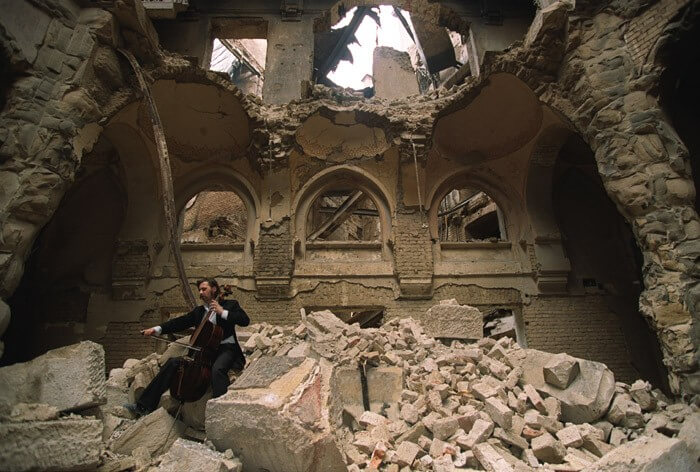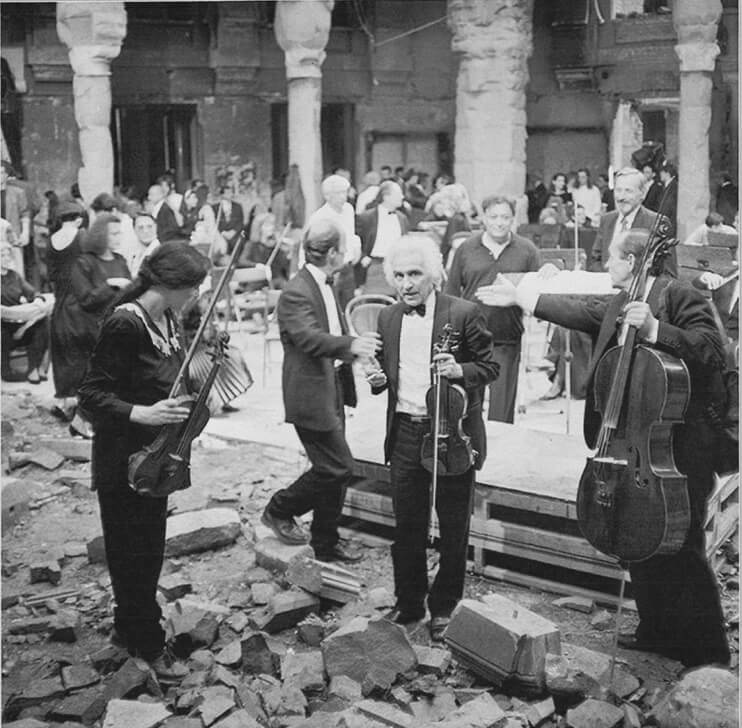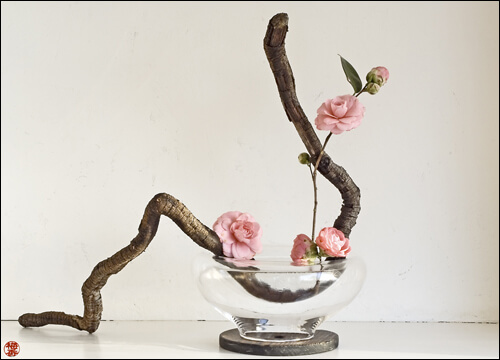
Finding Sanctuary in the Beauty of Music
I have not heard much discussion about Beauty these days….
What is Beauty? Is it important, or is it merely superfluous, an extra that is nice if one can get it? Is beauty synonymous with pretty? Does our culture believe that Beauty is a nonessential? Is the concept even worth wrestling with?
I am convinced that Beauty is vital to any flourishing of the human spirit, that we languish and wither from the lack of it. I believe our cities are feeling its dearth, and we don’t even know what we are missing. Beauty is on a different plane altogether than pretty, but we are unfamiliar with the concept and may not even know the difference.
Here is a story that may illustrate my point.
The place is Sarajevo. The time is 1990–1994, during the Siege of Sarajevo, “the longest siege of a capital city in the history of modern warfare” (Wikipedia). Characters in this true story are citizens of that city, and local musicians, one of whom was an acquaintance of my sister.
Before 1990, Sarajevo was a dazzling European city, filled with culture, history, and beauty. The 1984 Winter Olympics were held there because of its loveliness and its perfect situation in a valley surrounded by high mountains. But then came the Bosnian War, and the Siege. The city was completely blockaded, no entry, no exit. There was no means of getting supplies, food, or medicine. The city’s water and electricity was cut off. Hospitals, schools, government buildings were bombed to destruction; thirty-five thousand buildings were completely destroyed. As people attempted to venture out in search of wood or water, snipers sitting in the hills above them would pick them off at random. People hid in basements, cold and starving. It’s hard to imagine the darkness, chaos, and terror of that time in that place.
Structures that were beautiful and had cultural heritage were especially targeted for destruction. One of the first buildings to be bombed was the exquisite and irreplaceable National Library, one of the richest collections of historical and cultural manuscripts in the world. The bombing was intense, and the Sarajevo Philharmonic Orchestra needed to disband, but rather than quietly succumb to despair, they wanted to take a stand against the darkness; they had a statement to make against the ugliness as it descended. They scheduled one last performance. They would play together one last time in the ruins of the National Library. Here is a photo of that event from my sister’s archives:

My sister’s friend was a violist for the Sarajevo Philharmonic Orchestra. She also was a member of the String Quartet. Amazingly, this group of four braved the constant sniper fire every week to perform in small squares throughout the city, playing for an audience hiding in dark places, battered, cold, and afraid. They lavished their Beauty, shed their grace like a fragrance when they might have stayed home and enjoyed it in (relative) safety. Extravagant gift!
Theirs was a gift of Sanctuary—not a physical sanctuary, but a respite where one’s heart could momentarily escape pain and ugliness, and be nourished with hope for another day. These four musicians cherished Beauty and light, and were unwilling for brutality to extinguish what they wished to give, even though the cost was so great. They would not capitulate to darkness and ugliness.
As these four assembled with their instruments week after week, in the midst of the chaos, bombing, and sniper fire, standing defiantly as a point of light, they pronounced an indomitable spirit, proclaimed hope, declared courage for their suffering, beleaguered fellows. Beauty was their weapon, the standard they raised. It became their poignant battle cry: “You may kill our bodies, but you will never destroy our souls!”
I wonder what this deliberate act of Beauty must have done in that dark place to bring hope, solace, courage, and solidarity among the fellow sufferers of these musicians. One may never know, but what is obvious is the power inherent therein. Pretty could never stand, but Beauty, true Beauty, was and is a weighty force. It can be a reminder of humanity in the midst of inhumanity. It can give reason to hope and strength to go forward.
I believe Beauty is an intrinsic need in the human spirit, and the highest form of Beauty is not a thing to be possessed, but to be given away. When we find ways to shed this grace like a fragrance about us, we may find we have provided a small parenthesis of sanctuary another person needs in a moment of extremity. We cannot underestimate its power.
Yours for the return of Grace, Civility, Beauty, Gentility, and Excellence,
Mary Alice
P.S. If you are interested in this subject and period of recent history, you might enjoy this book: The Cellist of Sarajevo, by Steven Galloway. It is an unauthorized and fictionalized account of Vedran Smailović, one of the members of the String Quartet and Sarajevo Philharmonic Orchestra, top photograph. It will give you a sense of the difficulties of life in the city during the Siege of Sarajevo.




